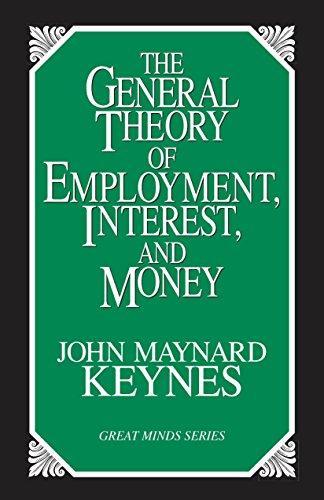John Maynard Keynes, 1st Baron Keynes, ( KAYNZ; 5 June 1883 – 21 April 1946) was an English economist, whose ideas fundamentally changed the theory and practice of macroeconomics and the economic policies of governments. Originally trained in mathematics, he built on and greatly refined earlier work on the causes of business cycles. One of the most influential economists of the 20th century, his ideas are the basis for the school of thought known as Keynesian economics, and its various offshoots.During the Great Depression of the 1930s, Keynes spearheaded a revolution in economic thinking, challenging the ideas of neoclassical economics that held that free markets would, in the short to medium term, automatically provide full employment, as long as workers were flexible in their wage demands. He argued that aggregate demand (total spending in the economy) determined the overall level of economic activity, and that inadequate aggregate demand could lead to prolonged periods of high unemployment. Keynes advocated the use of fiscal and monetary policies to mitigate the adverse effects of economic recessions and depressions. He detailed these ideas in his magnum opus, The General Theory of Employment, Interest and Money, published in 1936. By the late 1930s, leading Western …
John Maynard Keynes
Author details
- Born:
- Aug. 4, 1883
- Died:
- Aug. 4, 1946
External links
John Maynard Keynes, 1st Baron Keynes, ( KAYNZ; 5 June 1883 – 21 April 1946) was an English economist, whose ideas fundamentally changed the theory and practice of macroeconomics and the economic policies of governments. Originally trained in mathematics, he built on and greatly refined earlier work on the causes of business cycles. One of the most influential economists of the 20th century, his ideas are the basis for the school of thought known as Keynesian economics, and its various offshoots.During the Great Depression of the 1930s, Keynes spearheaded a revolution in economic thinking, challenging the ideas of neoclassical economics that held that free markets would, in the short to medium term, automatically provide full employment, as long as workers were flexible in their wage demands. He argued that aggregate demand (total spending in the economy) determined the overall level of economic activity, and that inadequate aggregate demand could lead to prolonged periods of high unemployment. Keynes advocated the use of fiscal and monetary policies to mitigate the adverse effects of economic recessions and depressions. He detailed these ideas in his magnum opus, The General Theory of Employment, Interest and Money, published in 1936. By the late 1930s, leading Western economies had begun adopting Keynes's policy recommendations. Almost all capitalist governments had done so by the end of the two decades following Keynes's death in 1946. As a leader of the British delegation, Keynes participated in the design of the international economic institutions established after the end of World War II but was overruled by the American delegation on several aspects. Keynes's influence started to wane in the 1970s, partly as a result of the stagflation that plagued the Anglo-American economies during that decade, and partly because of criticism of Keynesian policies by Milton Friedman and other monetarists, who disputed the ability of government to favourably regulate the business cycle with fiscal policy. However, the advent of the global financial crisis of 2007–2008 sparked a resurgence in Keynesian thought. Keynesian economics provided the theoretical underpinning for economic policies undertaken in response to the financial crisis of 2007–2008 by President Barack Obama of the United States, Prime Minister Gordon Brown of the United Kingdom, and other heads of governments.When Time magazine included Keynes among its Most Important People of the Century in 1999, it stated that "his radical idea that governments should spend money they don't have may have saved capitalism." The Economist has described Keynes as "Britain's most famous 20th-century economist." In addition to being an economist, Keynes was also a civil servant, a director of the Bank of England, and a part of the Bloomsbury Group of intellectuals.
